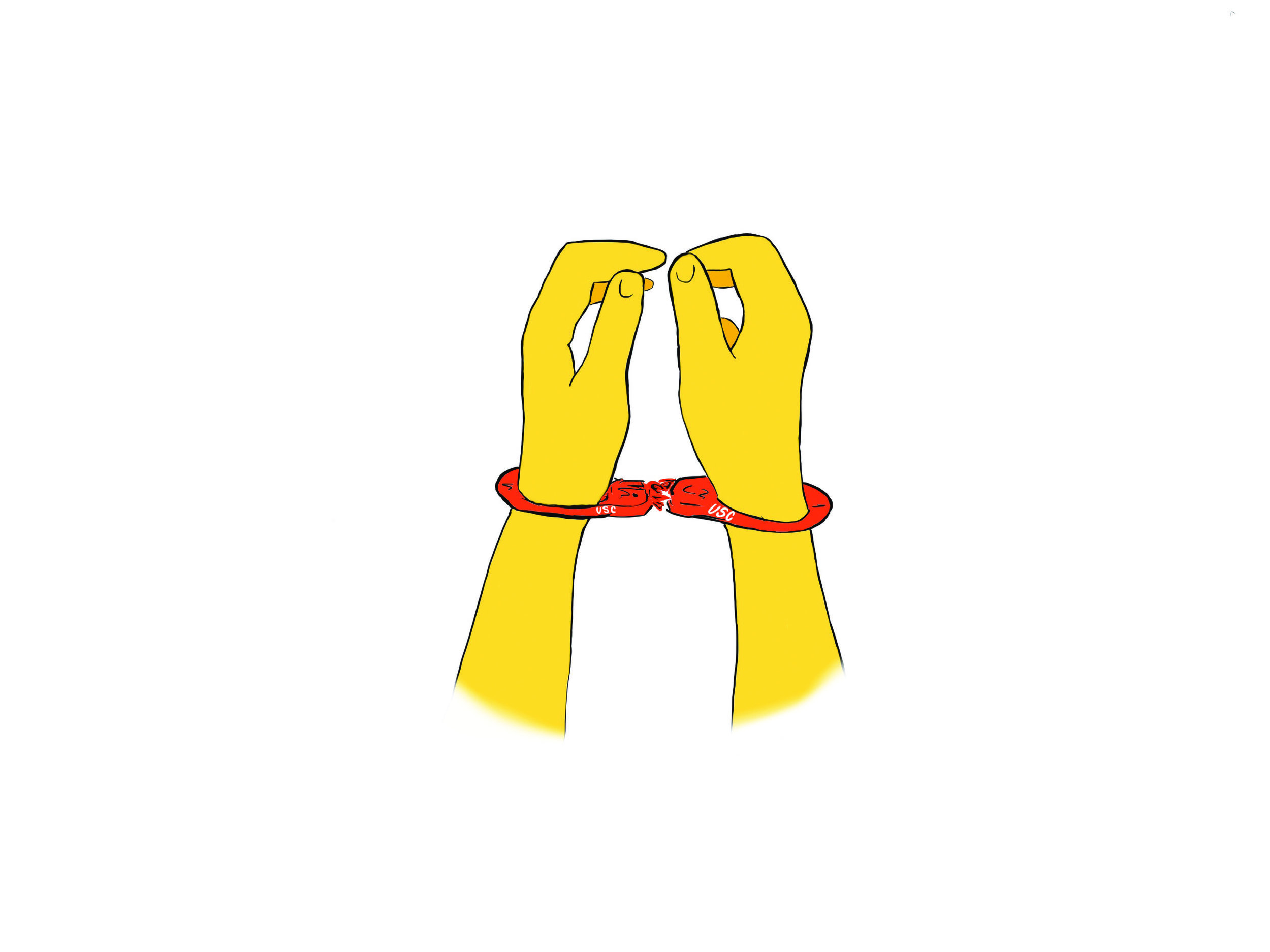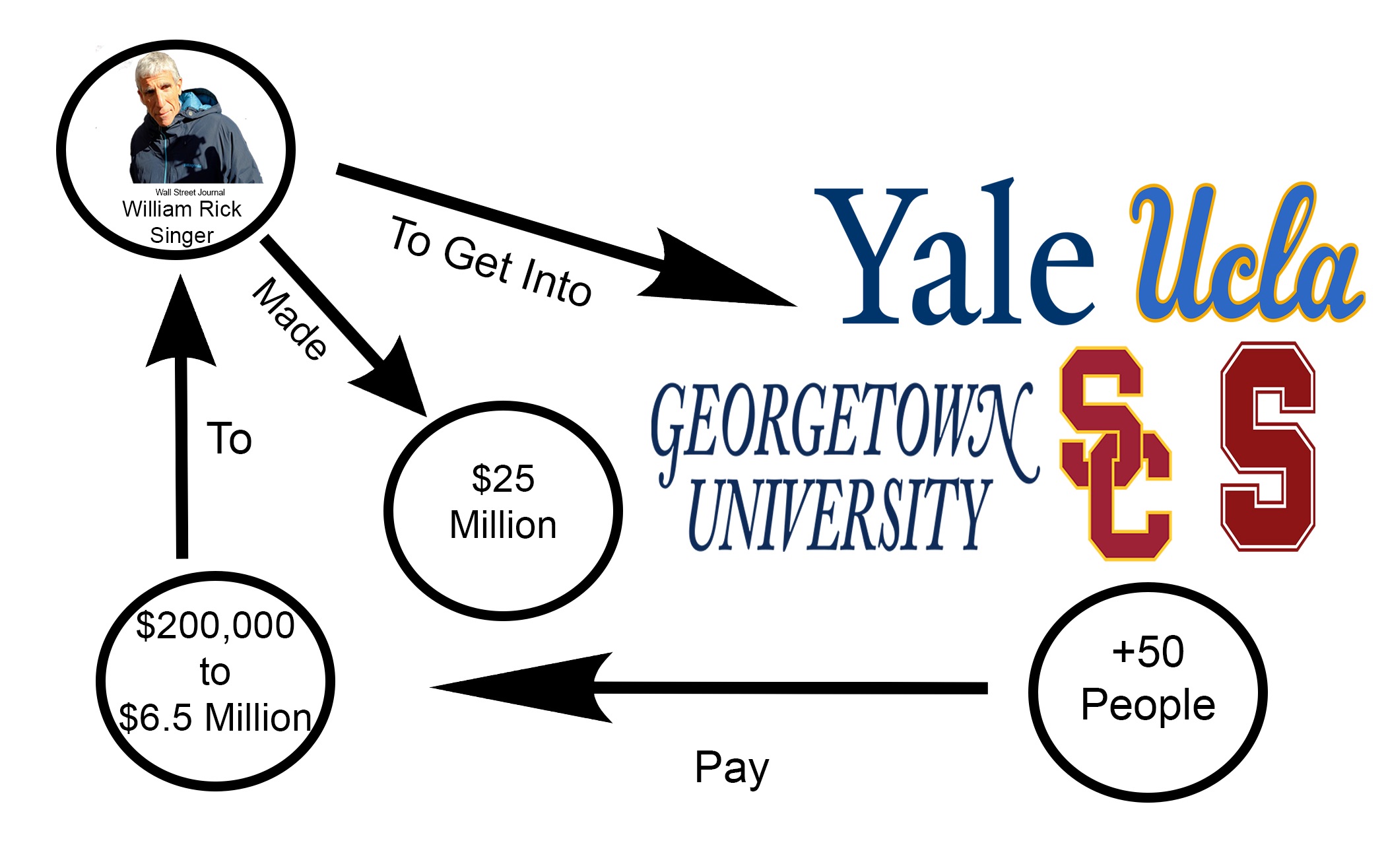The Recent College Admissions Scandal Begs for a Change in the Overall Admissions Process
Illustration by Pyper Witt/ The Corsair
On Tuesday, March 12th, news broke of the discovery of an underground college admissions service run by William “Rick” Singer, who charged wealthy families hefty amounts of cash (from $200,000 to $6.5 million on a case-by-case basis, according to the Los Angeles Times) for his services in getting their children into elite universities. More than 50 people were implicated. The process involved a number of extreme and illegal operations, including botched college entrance exam scores and the bribing of university coaches to offer places on their teams to students (many of whom didn’t even play the sport). UCLA, Georgetown, Stanford, Yale, and USC are just some of the exclusive universities that have been implicated.
The scandal, and subsequent investigation dubbed “Operation Varsity Blues,” brought forth the issue of the different “doors” that are utilized to enter college. Up until now, the public has generally been aware of two doors, front and back.
The front door is the most straightforward way of getting into college, and involves genuine reasons as to why a student should attend their desired school: good grades, high standardized test scores, and strong extracurricular backgrounds.
The back door, however, is open to the well-off who wish to improve the likelihood of admission through donations and endowments, legacy connections, and expensive tutors. The wealthy elite have been able to historically get a leg up in admissions in ways that are shady but, technically, legal.
However, Rick Singer has flung a new “side door” wide open, to the tune of a total $25 million in earnings. This strategy did not simply improve one’s likelihood of getting into college, but actually guaranteed it. With his covert (and very illegal) operations, Singer was able to promise parents that their children would be admitted to their top schools, no matter the cost (literally and figuratively). A list of over 50 of those entangled has been compiled, and those people are currently facing criminal charges, with final decisions still unfolding.
Infographic by Conner Savage
Since Operation Varsity Blues was exposed, the universities involved have been making efforts to recover. According to the New York Post, USC has put academic holds on all students involved. UCLA’s soccer coach, Jorge Salcedo, who accepted bribes from Singer, was put on leave. While these may be positive first steps, they are small, temporary fixes for the bigger issue.
The obvious question in the matter would be, why would these parents go to such extreme measures—just for the label? But if a wider lens is applied to the issue, the more concerning question is, why did anyone feel that these particular tactics were even necessary to achieve said label?
If 13 years of schoolwork can be completely negated by the results of tests that really only evaluate one’s ability to spit out memorized facts under extreme stress and time pressure, something is wrong. If the unethical actions of 33 parents can leave an entire country’s worth of students shaking in their boots, terrified of how this will affect their education, the system is obviously slanted. If college admissions didn’t operate like this, the so called side door would be a lot harder, impossible even, to open.
SMC and other community colleges offer an alternative pathway to an excellent education. This one is without test scores altogether, and it seems pretty attractive by comparison. Students can attend for two years, knock out their GE’s for a fraction of the cost, and transfer to an upper tier university with just their grades and essays making their admissions decision, rather than their parents’ wallets. The fact that SMC is number one in transfers to USC and UC schools, among others, means that students whose test scores were ineligible for freshman admissions at exclusive schools have the opportunity to flock from far and wide in order to get another chance.
Alternative pathways should not be necessary, but they certainly look pretty alluring at the moment. If, and until, serious change is made, maybe more students should consider adjusting their plan.
While news of this scandal may be disturbing, it also brings forth an opportunity to discuss the very serious issues within America’s education system. It brings a chance not only to slam the side door shut, but also to maybe, just maybe, begin closing the back door.


